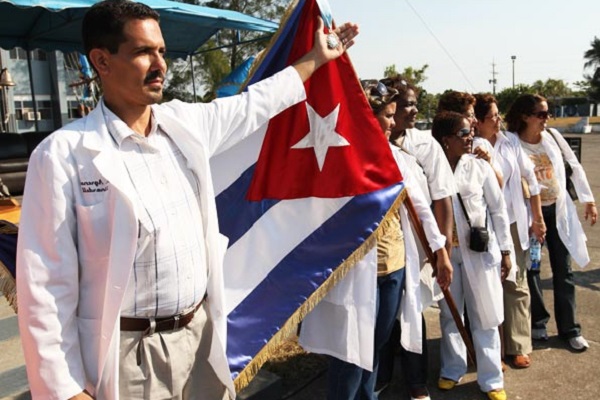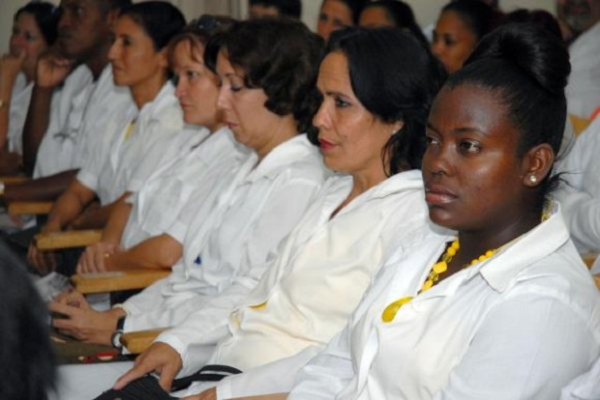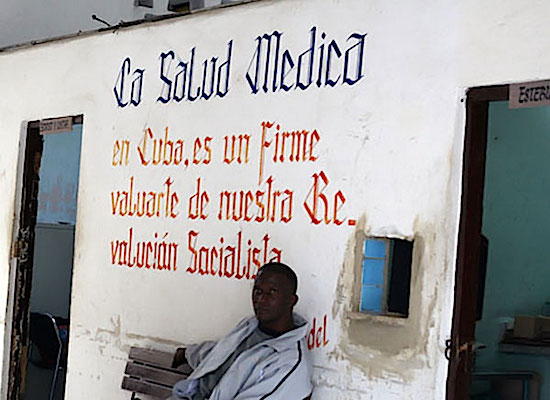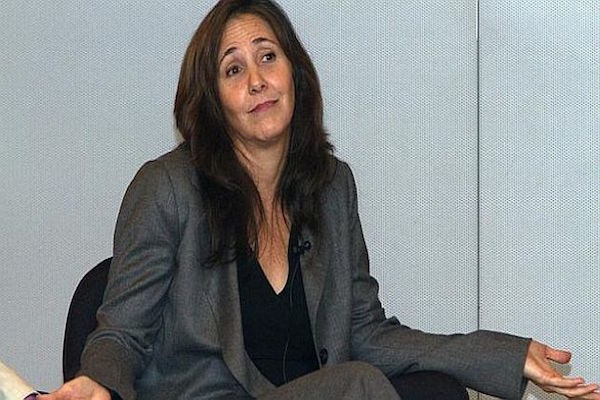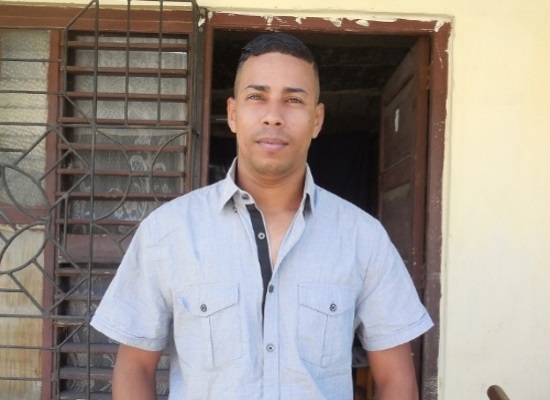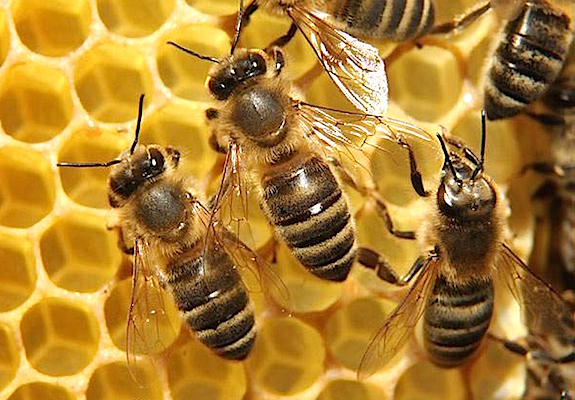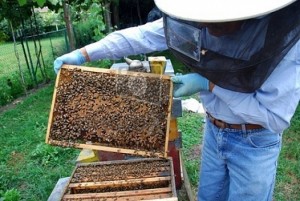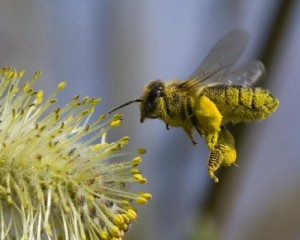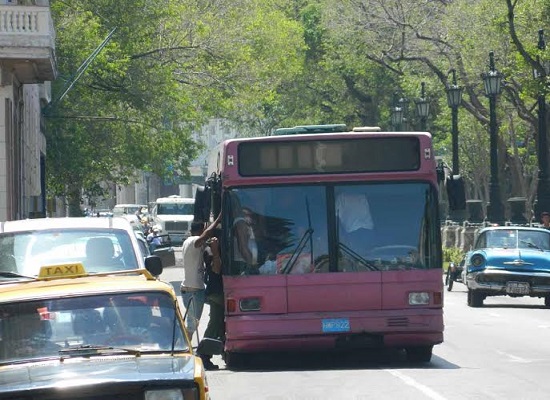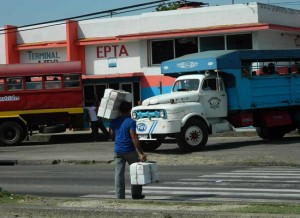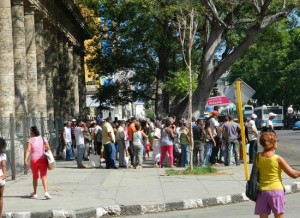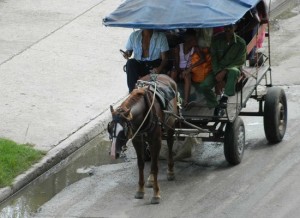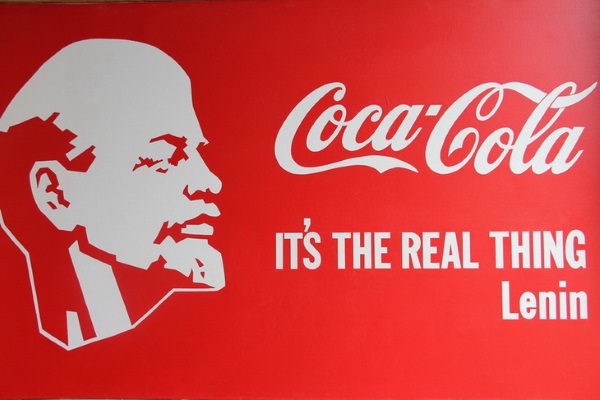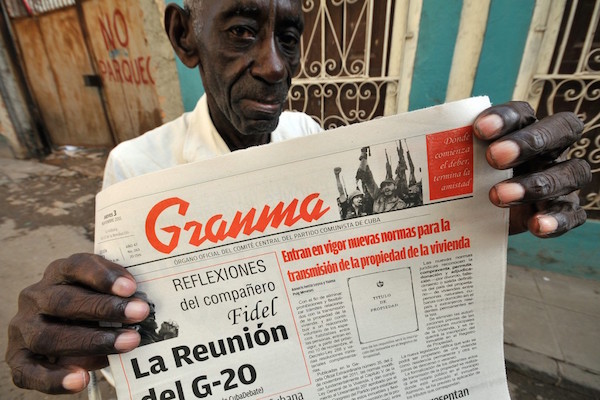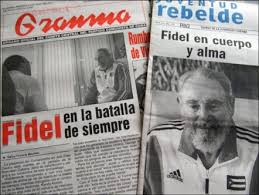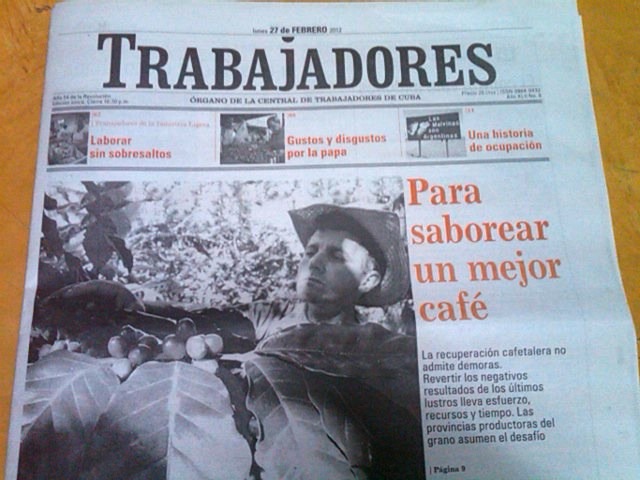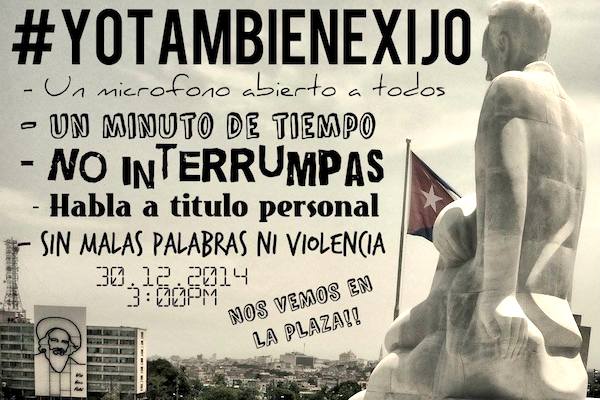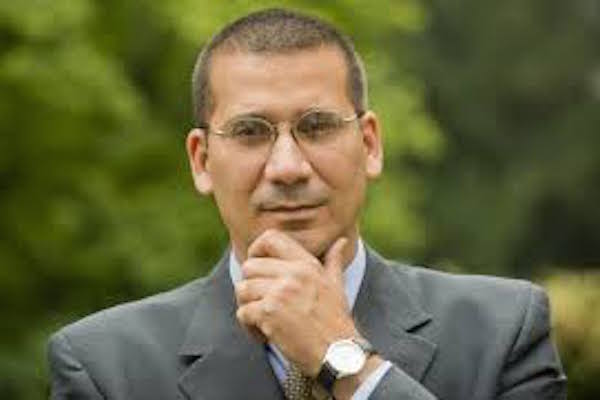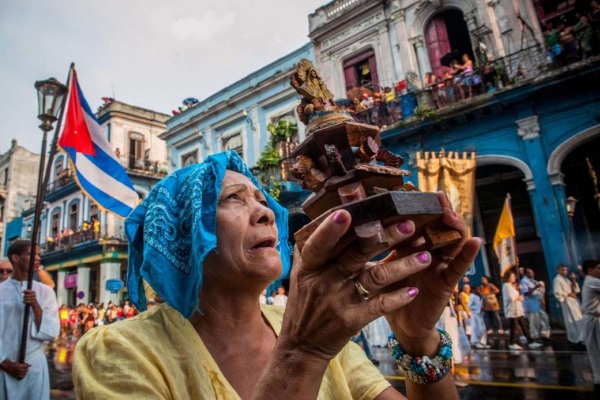On Monday, January 19 Cubanet published a report about the detention of the young Guantanemero Leinier Cruz Salfran on Saturday, January 17 by State Security agents. The reason? Leinier was gathering together a group of young people outside of the Hotel Marti, connecting through his laptop to the building’s WiFi and sharing the Internet with the others present who had also brought their portable computers to the location.
Because according to them I was committing a crime of Illicit Economic Activity.
connection.
Q: How many users came to connect to the Internet at the same time because of your initiative?
There was no fixed number, there were days when more than fifty people connected on the ground floor of the Hotel Marti which was generally where I was connected.
Q: What was the typical connection speed when everyone was connected at the same time?
The Hotel Marti has a bandwidth of 6 mbps (megabits per second) which equates to a download speed of 600 kb per second. The speed was sufficient for chatting, participating in a video conference or carrying out an audio session on Facebook. The speed was acceptable.
Later the hotel managers applied a speed limit of 2 mbps for each direct client. Only three people could connect directly to the hotel without interference. If another person connected the speed was divided among the four.
In the end, I had to tell the users that they could not do video conferences because now the bandwidth was insufficient for everyone. Everything was limited to opening pages, downloading email and voice sessions.
Q: How would you rate the internet connection opportunities that exist today in the city of Guantanamo?
There are very few internet access points, just two Internet rooms with 10 computers for a city of more than 150,000 residents. Furthermore, now the Hotel Marti denies Internet access to Cubans, who now cannot even pay a dollar to go up to the terrace which is where they have placed the wifi access.
Also, in the Hotel Guantanamo, the equipment for the point of access used to be in the lobby and now they put it on the second floor and even removed the antennas, which they only put up between 4 and 8 pm. Whoever wants to access the internet has to pay one dollar per hour. This part a decision by the government itself.
Q: The police accuse you of supposed illicit economic activity. Did you charge for sharing Internet access or did you share the cost of the connection with your friends?
I never charged because I knew they were following me. After I started sharing the connection I knew that I had become a dangerous enemy for the authorities and I knew that at some point I was going to confront them face to face, obviously on their terms, so I just shared the cost of the connection.
Q: Is there a law in Cuba that prohibits sharing the connection cost among several users?
I don’t know. During the interrogations they spoke to me of a crime called Violation of Contractual Services, something like that, in which the crime of violating a contract incurs a penalty of up to three years incarceration. Apparently they were convinced there was no evidence of any illicit economic activity, however, they emphasized that I violated the contract with ETECSA (Telecommunications Enterprise of Cuba) by using the Nauta (Internet) service, but in my opinion they did not want to go to the extreme of sentencing me.
Q: Did they return your laptop, flash drives and camera that they took during the search of your home?
No, they still have not told me what they will do with them. They took them from me and have left me disarmed because I am a programmer.
Q: Do you plan to do it again?
No, no I cannot trip on the same rock, it would be stupid if I did that. I think I have to focus my efforts on other artists, other projects that I have in mind until I find a person with strength and the chance of helping me carry them out.
Q: Why do you think they authorities hinder cheap Internet access for young Cubans?
I believe that it is the policy of the State to maintain massive disinformation for the Cuban population, and that is demonstrated by the fact that this government has never permitted free access to information. Here we have no chance of getting computers, mobile devices, access to satellite TV, the Internet, there are no satellite phone connections or access to information technology. What they have done to me proves it.
Q: What is your current legal situation?
Apparently I am not going to have a trial. They told the mother of my daughter who communicates with me to go to the Operations Unit to process the application of a fine, God knows for how many pesos, but I have decided not to go until such time as they communicate it to me as the law provides, through a document. The same way that they came with a search warrant the very day that they arrested me in front of my neighbors as if I were a delinquent and arrested me, that’s how they must do it for me to go there.
(We went to the Hotel Marti, the place where Leinier carried out his supposed derelict activity for which he was arrested. This reporter tried on three occasions to speak with the hotel manager, leaving his address and telephone number with a note in which we expressed that our intention was to bring to her attention what Cubanet published so that she could offer her viewpoint. In spite of our efforts, the lady did not agree to an interview.)
About the author
Roberto Jesus Quinones Haces
Born in the city of Cienfuegos September 20, 1957. He is a law graduate. In 1999 he was sentenced unfairly and illegally to eight years incarceration and since then has been prohibited from practicing as a lawyer. He has published poetry collections “The Flight of the Deer” (1995, Editorial Oriente), “Written from Jail” (2001, Ediciones Vitral), “The Sheepfolds of Dawn” (2008, Editorial Oriente), and “The Water of Life” (2008, Editorial El Mar y La Montana). He won the Stained Glass Grand Prize for Poetry in 2001 with his book “Written from Jail” as well as Special Mention and Special Recognition from the Nosside International Poetry Competition in 2006 and 2008, respectively. His poems appear in the 1994 UNEAC Anthology, in the 2006 Nosside Competition Anthology, and in décimas selections “This Jail of Pure Air” by Waldo Gonzalez in 2009.
Translated by MLK
 Cubanet, Roberto Jesus Quinones, Guantanamo, 16 February 2015 — A rumor is keeping the medical sector in Guantanamo euphoric, and it provokes immediate outbursts of joy in hospital corridors, in homes and in every place the supposedly good news is known. No one knows the origin of the rumor nor its hidden intent.
Cubanet, Roberto Jesus Quinones, Guantanamo, 16 February 2015 — A rumor is keeping the medical sector in Guantanamo euphoric, and it provokes immediate outbursts of joy in hospital corridors, in homes and in every place the supposedly good news is known. No one knows the origin of the rumor nor its hidden intent.